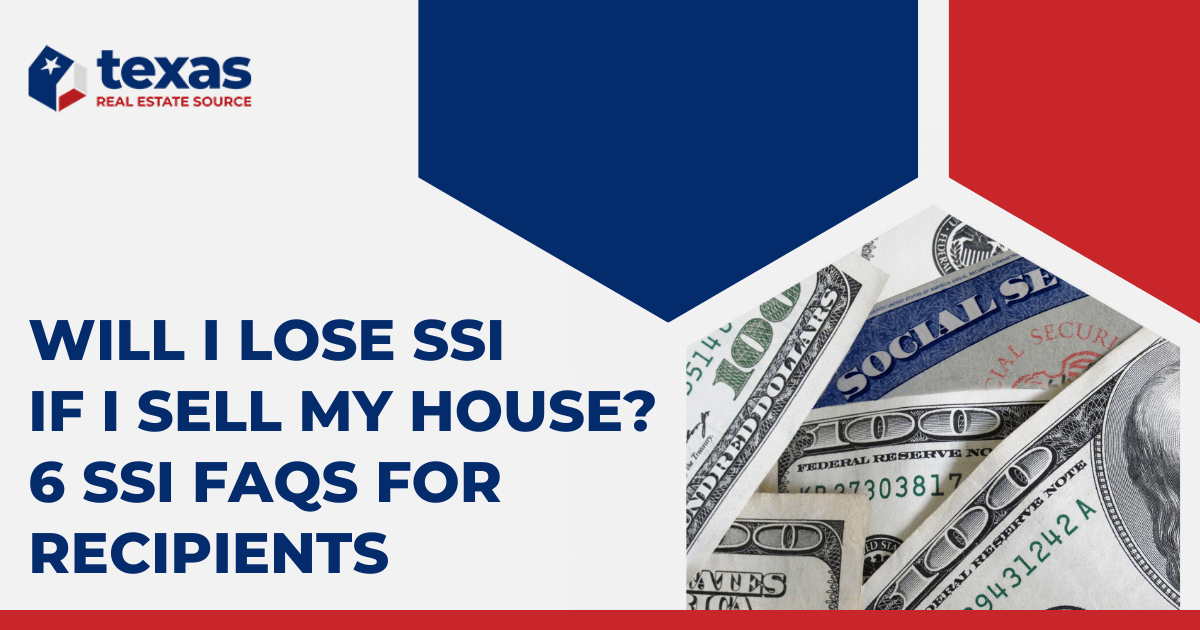People who get Supplemental Security Income (SSI) to help pay their bills may not think they can afford to buy a house. To get SSI, you have to meet strict asset limits, so how are you going to pay for a down payment and closing costs?
The good news is that buying a home will not automatically disqualify you from receiving SSI benefits. However, real estate transactions can impact your eligibility in other ways if you are not careful. Here is what SSI recipients should know about homeownership.
How SSI Asset Limits Work
SSI helps seniors, adults, and disabled children who don’t have a lot of money or resources by giving them cash. To be eligible, a person can’t have more than $2,000 in assets, and a couple can’t have more than $3,000.
Certain assets are exempt from these limits including
- Your primary home and surrounding property
- One vehicle used for transportation
- Burial plots
- Up to $100,000 in an ABLE account
- Retirement accounts like IRAs and 401(k)s
This means the value of your home does not count against the asset limits for SSI. So just buying a house will not automatically disqualify you.
Can You Get a Mortgage on SSI?
While home values are exempt, coming up with the cash for a down payment and closing costs can be tricky on a fixed SSI income. Still, there are ways to buy a home without much cash up front:
- VA and USDA loans require 0% down for qualifying borrowers. You still need cash for closing costs.
- Down payment assistance programs provide grants for buyers who meet income limits.
- ABLE accounts let SSI recipients save up to $100,000 without impacting benefits.
As long as you use exempt assets or special financing, you can buy a home without losing SSI. Just don’t take cash out of non-exempt accounts, or you may go over the limit.
How Proceeds from Selling a Home Impact SSI
Buying a house doesn’t change your SSI benefits, but what happens after you sell your house might. If you want to sell, here are some important things to know:
- You have 9 months after selling to reinvest the proceeds from the sale into another exempt asset, like a new home.
- If you don’t reinvest within 9 months, your benefits will be reduced based on the cash proceeds you retain.
- You then have 12 months to spend down the proceeds before you lose benefits entirely.
In the end, selling will only temporarily stop benefits if you know how to handle the money properly. Be sure to consult a financial advisor to avoid missteps.
Tips for Homeowners on SSI
If you successfully purchase a home while retaining your SSI, here are some tips to make the most of homeownership:
- Consider a roommate to help cover the mortgage payment each month. Their contribution isn’t counted as income.
- Rent out a room on Airbnb. Again, lodger income isn’t counted for SSI purposes.
- Lower utility bills through energy efficiency upgrades like new windows or insulation. Utility subsidies may be available in your area too.
- Apply for property tax exemptions for homeowners on disability or fixed incomes.
- Set up automatic payments for bills so you don’t miss important payments if hospitalized or unable to manage finances temporarily.
With the right preparation and support, homeownership is possible even if you receive SSI. Consult a HUD-approved housing counselor or financial advisor to walk through your specific situation. With expertise on your side, you can become a homeowner without jeopardizing this vital benefit.
Frequently Asked Questions
Can I lose SSI for having a reverse mortgage?
No, reverse mortgage proceeds are not counted against SSI asset limits. The home remains exempt.
What if I inherit a house while on SSI?
A home inherited while receiving SSI is still exempt as your primary residence. It will not impact your benefits.
Can I use SSI for a down payment on a house?
No, you cannot use SSI funds directly for a down payment. You’ll need to use other exempt assets or special financing options.
What happens if I give away my house while on SSI?
If you gift your home to someone else, you may lose benefits if you do not receive fair market value compensation in return. Consult an SSI expert before gifting assets.
Can I get SSI if I own multiple homes?
No, only your primary residence where you live at least 6 months per year is exempt. Additional homes may put you over the asset limits for SSI eligibility.

Does Owning a Home Affect SSI vs. SSDI?
- SSDI has no asset limits, so you can own a house, land, or other property without affecting your benefits.
- You do NOT need to report homeownership to SSA if you only receive SSDI.
- You can buy, sell, or inherit a home freely without losing SSDI.
The only way SSDI would be affected is if you start earning income from rental property or house flipping.
Can I Use My SSDI Backpay to Buy a House?
Yes! SSDI backpay has no restrictions and can be used for a down payment or mortgage.
